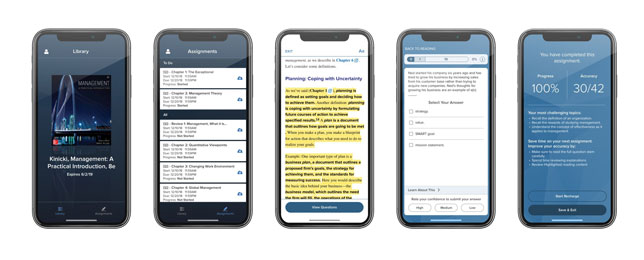McGraw-Hill Upgrades Adaptive Learning Engine
McGraw-Hill Education today announced SmartBook 2.0, an update to the adaptive learning engine for its Connect learning platform.
Connect is a homework and learning management solution that uses adaptive tools to serve up personalized learning content according to students' individual needs. With SmartBook 2.0, McGraw-Hill has upgraded the adaptive algorithms, "built based upon advanced learning science principles to adapt to each individual learner's needs, pinpoint and resolve knowledge gaps, and increase learning efficiency by moving knowledge into long-term memory more quickly," according to the company.
New features of SmartBook 2.0 include:
- The ability to create personalized review assignments based on the content students struggle with;
- More flexibility and control over assignment topics, down to the sub-topic level;
- Greater course content control and improved alignment with an instructor's syllabus;
- Improved reporting and analytics on instructor performance, to help guide teaching and remediation at the class and student level;
- A "Learn About This" function that provides greater exposure to contextual learning materials;
- The ability for students to access previously completed assignments in order to focus on areas that need extra attention;
- Accessibility features to support learners with visual, auditory, cognitive and mobility needs; and
- Availability on mobile devices, both online and offline.

SmartBook 2.0
"SmartBook is a powerful tool for the hundreds of students I teach every semester — helping pinpoint knowledge gaps and focus their learning on concepts requiring additional study," said William Hoover, professor at Bunker Hill Community College, in a statement. "My students are grasping core concepts and coming to class better prepared for advanced instruction. I can't wait to introduce SmartBook 2.0 into my courses. The more advanced algorithms behind the technology, the mobile and offline reading and assignment completion capabilities and the new reports for instructors will make this incredible tool even more useful and effective."
SmartBook 2.0 will become standard for Connect users at the end of 2019. For more information, visit the McGraw-Hill site.
About the Author
Rhea Kelly is editor in chief for Campus Technology, THE Journal, and Spaces4Learning. She can be reached at [email protected].